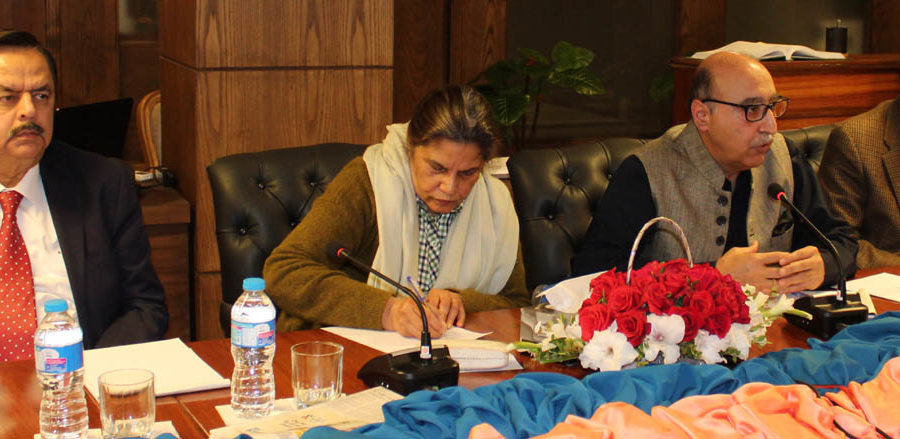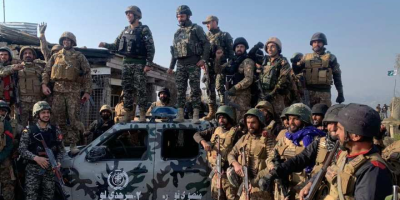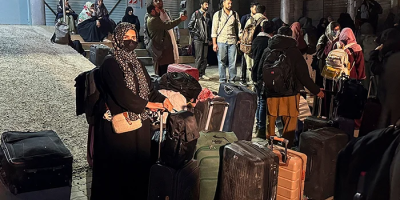International perceptions of Pakistan and how to improve its image

ISLAMABAD, DEC 29 (DNA) – ‘Diplomacy is no longer traditional, it is now a multi-track process and image building too has become multidimensional and cannot be expected to happen automatically, nor in isolation from what is transpiring at the global level.
It is important that Government of Pakistan establish a dedicated Public Policy Division in its Ministry of Foreign Affairs.’
These were some of the salient points and recommendations of the panelists speaking at the Guest Talk on ‘Pakistan’s Image Building: International Perceptions of Pakistan & How to Improve its Image’ organized by the Islamabad Policy Research Institute here in Islamabad today.
Giving his introductory remarks, President of IPRI and the former High Commissioner to India, Ambassador (R) Abdul Basit said that a country’s image cannot be built if it is divorced from reality, especially when there are actors and states engaged in blighting a country’s image. It is important to counter such detractors with rapid response ideas crafted on the basis of facts, logic and wisdom in order to revamp Pakistan’s global image through public image building.
‘Over the past decade, Pakistan has not been able to sell its positive image abroad successfully and it is critical that government institutions, the media and think-tanks work together to evaluate why and how Pakistan’s soft image can be enhanced’, he urged.
Discussing the topic, Ambassador (R) Fauzia Nasreen pointed out Pakistan is a pivot around which world politics now revolves given its geostrategic importance. ‘We need to capitalize on this window of opportunity for 2018’, she urged. According to Ambassador Nasreen, Pakistan is fighting battles on multiple fronts, be they diplomatic or military and given the difficult times, expectations from the Foreign Office have been too high. ‘The onus for any shortcomings has to be shared collectively’, she said. With so many challenges on its domestic front, the government has perhaps been too preoccupied to take stock of global paradigm shifts taking place since the end of the Cold War.
‘There is a need to put aside more financial and human resources to complement Pakistan’s positive efforts. Credibility of the national narrative and training of young diplomats along modern lines is also critical’, she suggested. In his remarks, Major General (R) Syed Khalid Jaffery, HI(M), President of the Center for Global and Strategic Studies shared that Pakistan’s biggest challenges have been terrorism, human trafficking and the way civil-military relations are viewed abroad. The narrative of terrorism has been built very scientifically by India using Kashmir as the scapegoat, and Pakistan’s role in Afghanistan is also often painted negatively in spite of successful operations against terrorism. ‘Even our relationship with China is seen as a weakness given the strategic imperatives of other rival power players’, he said. Major General Jaffery pointed out that while human trafficking is a serious concern, ‘it is only a few bad apples who use illegal means and soil our country’s image due to whom genuine businessmen and academics are often denied visas.’ The government should interact with the international media to project Pakistan’s strong cultural roots and sites of tourism, he recommended.
While sharing positive interactions with the people and governments of various countries where he was stationed including Turkey, Morocco, and Chile , Ambassador (R) Burhanul Islam, reminded the audience that while Pakistan has governance and corruption problems, so do other countries, including India with its shocking rape and poverty statistics. ‘It is only post-9/11 that Pakistan’s image as a great country and great people has been tarnished, principally and fundamentally crafted by the Indian intelligentsia’, he shared.
The participants concluded that Pakistan needs a well-calibrated soft Power Diplomacy Strategy which is cognizant of today’s complex world and the period of history we live in. Pakistan as a nation and people needs to take greater pride in its ancient culture and civilization.
There is a world beyond India and Pakistan’s decision-makers should focus on cultivating deeper ties with Africa and especially the Middle East.
It was agreed that different countries use soft and hard power in different ways and the best results are obtained when both are aligned and complement each other through smart power.
‘Pakistan needs to develop a smart policy to advance its soft image through media, tourism, literature, art, music, theater and effective public diplomacy’, it was agreed.=DNA
=======
Related News

Pakistan eliminates Mid-level TTP leaders in cross-border strikes as Operation Ghazab-lil-Haq intensifies
RAWALPINDI, MAR 5 /DNA/: Security sources on Thursday confirmed that several mid-level leaders of theRead More

Pakistanis fleeing Iran describe strikes shaking ground under their feet
ISLAMABAD, MAR 5 /DNA/: Pakistanis fleeing Iran described explosions and missile strikes across Tehran shakingRead More


Comments are Closed